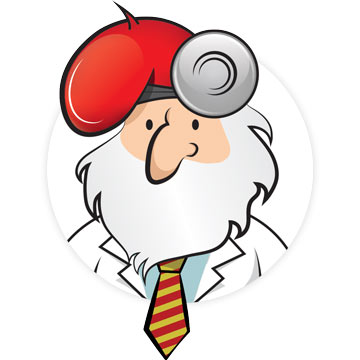Dental Specialty FAQs
What is an Oral and Maxillofacial Surgeon?
Oral and Maxillofacial Surgeons are dentists that specialize in surgery of the mouth, teeth, gums, jaws and related facial structures. After completing their dental school education, oral and maxillofacial surgeons receive another four to seven years of hospital-based surgical and medical training. This additional training provides them with the experience necessary to perform a wide variety of procedures that involve the bones and soft tissues of the face, mouth and neck.
What is a Periodontist?
Periodontics is a specialty branch of dentistry formally recognized by the American Dental Association (ADA). Periodontists have three additional years of education after dental school. Periodontist focus on keeping the gums and bone around your teeth healthy. This involves the prevention, diagnosis and treatment of periodontal, or gum, disease. Periodontists perform a range of health-related and cosmetic periodontal procedures.
Why is Your Dentist Referring You to a Periodontist?
After determining that you are exhibiting signs of gum disease, your dentist will refer you to a periodontist. The periodontist and dentist will work as a team to ensure that you receive the highest level of care. They will produce and execute a treatment plan for you and confer with each other about your progress. By referring you to a specialist, your dentist is protecting your dental health.
What is an Endodontist?
Endodontics is a specialty of dentistry concerned with treatment of the inside of the tooth. The endodontist receives additional training, after dental school, in becoming an expert on dental pulp and periapical tissues of the teeth. An endodontist can diagnose and treat infection, damage and disease within the tooth's internal structures.
Endodontists provide a thorough dental examination that may include measuring tooth sensitivity, pulp testing and diagnostic imaging. This determines the overall condition of the pulp and tissue. The endodontist evaluates the results and determines the best method of treatment in order to alleviate the problem and prevent tooth loss.
What is a Prosthodontist?
Prosthodontists complete three years of additional training, through a hospital or university-based program, after dental school. Prosthodontists correct issues with oral function, comfort and appearance that stem from missing or deficient teeth. Using a series of procedures such as dental veneers, crowns, implants and dentures, a skilled prosthodontist can improve a patient's oral health as well as their appearance.
What is a Pediatric Dentist?
Pediatric Dentists have at least two years of training after completion of dental school. The training focuses on child psychology, management and treatment of a child's developing teeth, physical growth and developmental needs. A pediatric dentist and the members of the dental staff are well versed in working with anxious or uncomfortable children. Many pediatric dental offices provide games and other distractions to help young patients. Special needs children may have particular dental needs or issues, and a pediatric dentist can provide the effective all-around care needed.
What is an Orthodontist?
Orthodontists adjust misaligned teeth and treat related problems of the mouth, teeth and jaws. With dental appliances that include braces, retainers and many other devices, an orthodontist develops and implements a plan for straightening the teeth and correcting the way the jaw fits together.
Orthodontists treat children and adults for many different problems, such as:
- Crowded teeth
- Misplaced teeth
- Difficulty biting or chewing
- Speech issues
- Teeth that meet in an irregular way.
These tooth and jaw problems may be caused by adverse habits, such as:
- Thumb sucking
- Disharmonies of growth between the upper and lower jaw
- Ooverbite
- Underbite
- Crossbite.
Why Visit an Orthodontist?
Your dentist may recommend a visit to the orthodontist because they notice a problem with the alignment of your teeth or jaw. If you are unhappy with the way your teeth look, a consultation with an orthodontist might to explore possible treatment options is an option.
Additional Resources
- Medline Plus
- National Institutes of Health
- National Institute of Dental and Craniofacial Research
- Centers for Disease Control and Prevention
- Eunice Kennedy Shriver National Institute of Child Health and Human Development
- U.S. Department of Health & Human Services
- U.S. National Library of Medicine
- WebMD
Copyright © 2013 - 2025 Da Vinci Interactive Webservices, Inc.
All Rights Reserved.
Content presented on this website is for general information only. The healthcare provider | Gregory Vixie DDS | is not responsible for any content selection, or any errors, inconsistencies, or outdated information.

 change health information topics, accept appointments and more!
change health information topics, accept appointments and more!